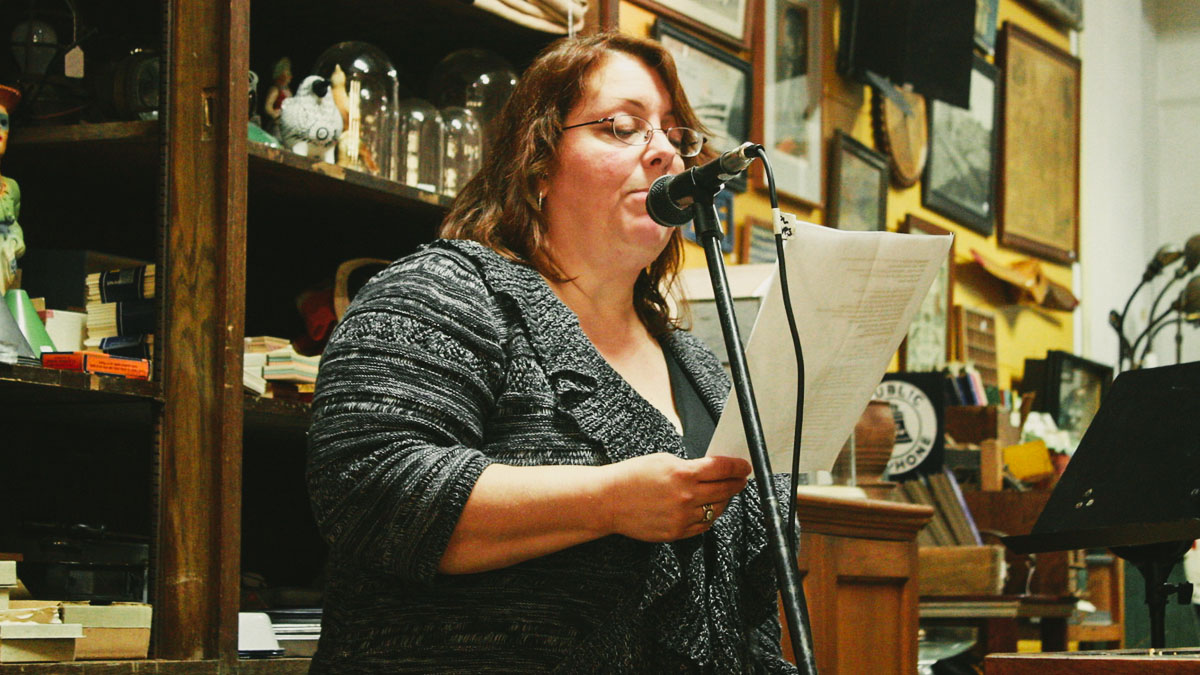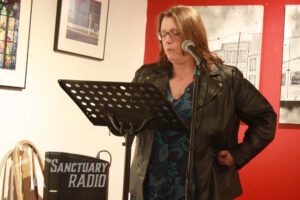A couple of weeks ago I was one of the features at a Zoom reading series. As society begins to “open up” after over a year of COVID-19, I have grown used to the format, and although not ideal, it’s definitely got its advantages. I have attended many events I might not normally get to, either because of timing or distance. It has helped keep poetry connections connected and even helped to create a few new ones. Zoom, I think, will be here for a long time after we begin to gather again in person.
In fact, this Zoom version of a long-running series had quite a bit in common with its live predecessor. For the several decades, it has existed, this reading has established a reputation for allowing open mic readers to go on for as long as they please. There are perimeters stated clearly at the start, month after month, but there are always the poets who seem to regard themselves as exceptional. “Can I read two short ones?” they meekly intone, never following up with two short ones. Or else the one poem they offer rivals The Iliad in length and scope but is technically one poem. Then there are the readers who are hellbent on getting their poems out in the allotted time, so they race through the work so that rhythm and nuance are left far behind. They must achieve some sort of satisfaction for having “followed the rules,” but they’ve sacrificed the quality of their presentation in the process. And the hosts never interrupt, for fear of offending the poets, or worse yet, discouraging them from returning.
It is difficult to host and manage a poetry reading, to be sure. Poets have justifiably earned their reputations as sensitive souls. That’s how poems get written. But to refuse to corral in clock abusers really does no one, listeners or other readers, any favors. When someone in the open mic portion of the evening goes on for as long as one of the features, what value or distinction is left for the feature to feel, that they were selected because of the quality of their work? If it seems that anyone can grab a feature-length spot at a whim, why should the actual features put the time and energy into their presentations?
There is also a phenomenon called “listener fatigue” that is very real. Many of us come to readings after long days or weeks of life looking for a quality diversion. However, the energy available for such an experience is often limited. The range of poetry presented in a single evening is vast in scope and topic. Even the most eager of listeners can be worn out by two or three hours of this hodgepodge. When features are known in advance, and it is understood that they will be reading for a longer time than open mic poets, listeners can settle in and take the journey with that poet. Open mics have always been intended as sampler presentations, a chance for poets to share one or two of their poems and maybe encourage sales of their latest chapbook. Lengthy introductions, long poems, too many poems, and a lack of awareness of whether or not they are connecting with listeners all lead to a negative experience, if not downright discomfort and resentment.
I do speak from experience. I have hosted several open mic series over the years, and it can be awkward to stop a poet mid-sentence because their time is up, or refuse them “just one more” because the ones they’ve read have already exhausted their turn. But it is always the right thing to do. I don’t know what comes over readers when they get behind the mic sometimes. It seems they become enchanted, perhaps with the sound of their own voices, and suddenly they fancy themselves The Voice of the evening that will enlighten all present. They rarely are. As with all performances, it’s always best to leave the audience wanting more. They will ask you for more if they desire it, and forcing it on them won’t change their response. The host might even ask you to feature in the future if they think your work is worthy. But don’t assume because you’ve got the mic that it’s yours indefinitely. I have literally pulled the plug on some ornery readers, and would not hesitate to do so again.
Such behavior really exposes the true reason that most poets attend readings– so that they themselves can read. I’ve seen so many with little to no interest in what others are reading, so engrossed are they in flipping through their own thick binders of poems. It’s rude, primarily, but it also thwarts the essential goal of poetry and most art— communication. You can’t find out what’s going on around you if you don’t listen. And you’ll never become a more effective poet, worthy of a legitimate, invited feature that you can invite friends to witness, if you don’t first embrace other poets in this celebration of words.





